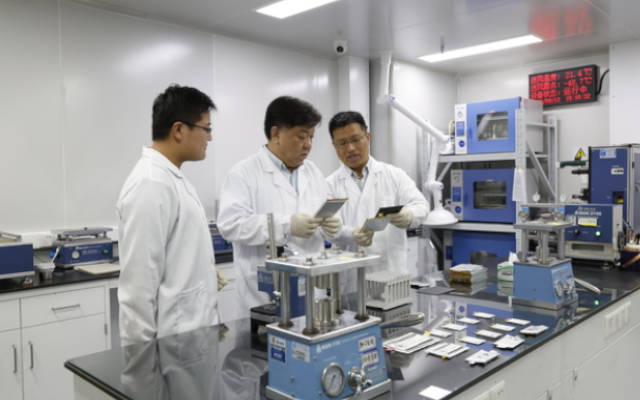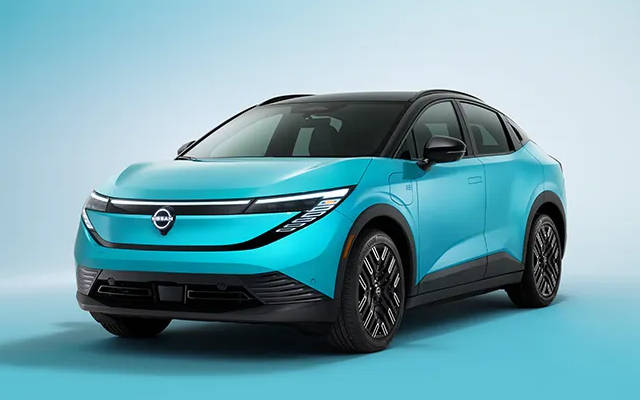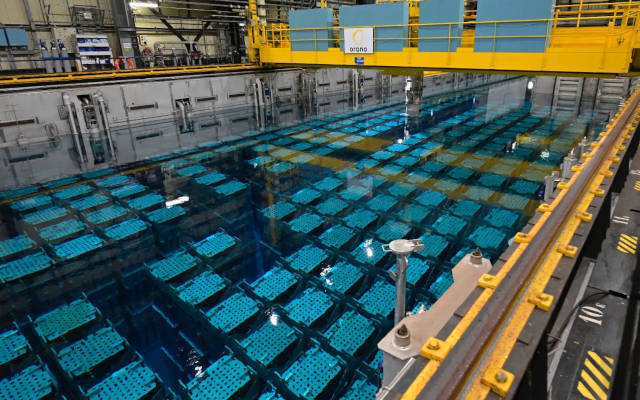 EDITOR'S PICK
EDITOR'S PICK
China's 600 Wh/kg Lithium-Metal Battery Breakthrough: Hype or Real Progress?
19 Aug 2025 | Synopsis
 Chinese researchers report lithium-metal pouch cells reaching 600 Wh/kg - nearly double today's EV batteries. Published in Nature, the work uses a novel electrolyte and shows promising density but only ~100 cycles, far short of EV needs. Scaling, safety, and cost remain unproven. While credible science, it's early-stage. Current leaders like CATL, BYD, Amprius, and SES offer lower but durable densities; no one is yet close to 600 Wh/kg for real EVs.
Chinese researchers report lithium-metal pouch cells reaching 600 Wh/kg - nearly double today's EV batteries. Published in Nature, the work uses a novel electrolyte and shows promising density but only ~100 cycles, far short of EV needs. Scaling, safety, and cost remain unproven. While credible science, it's early-stage. Current leaders like CATL, BYD, Amprius, and SES offer lower but durable densities; no one is yet close to 600 Wh/kg for real EVs.2026 Nissan LEAF: Performance Meets Value in America's Most Affordable EV
19 Aug 2025 | Synopsis
 2026 Nissan LEAF redesign: 303-mile range, Tesla Supercharger access, starts $29,990 - America's cheapest new EV. 75kWh battery, 35-min fast charging, crossover styling vs old hatch. SV+ trim $34,230, undercuts 2025 by $1,960 despite more features. Available fall 2025. Targets affordable EV market vs premium competitors. Google built-in, panoramic roof, flush door handles. Could revive pioneering nameplate.
2026 Nissan LEAF redesign: 303-mile range, Tesla Supercharger access, starts $29,990 - America's cheapest new EV. 75kWh battery, 35-min fast charging, crossover styling vs old hatch. SV+ trim $34,230, undercuts 2025 by $1,960 despite more features. Available fall 2025. Targets affordable EV market vs premium competitors. Google built-in, panoramic roof, flush door handles. Could revive pioneering nameplate.The Infinite - and Insatiable - Growth of Highways
19 Aug 2025 | Synopsis
 Erick Guerra challenges the myth that more highways ease congestion or improve safety. He shows how induced demand, entrenched financial interests, and flawed planning standards drive endless road expansion. Instead, he calls for congestion pricing, downsizing overbuilt roads, and shifting focus from mobility to accessibility - steps he argues are vital for creating a safer, fairer, and more sustainable transportation future.
Erick Guerra challenges the myth that more highways ease congestion or improve safety. He shows how induced demand, entrenched financial interests, and flawed planning standards drive endless road expansion. Instead, he calls for congestion pricing, downsizing overbuilt roads, and shifting focus from mobility to accessibility - steps he argues are vital for creating a safer, fairer, and more sustainable transportation future.New Technologies Will Hasten The End Of Fossil Fuels. Yay!
19 Aug 2025 | Synopsis
 Two breakthrough techs will accelerate fossil fuel decline: Hyundai's solid-state battery with copper anodes (higher energy density, safer, cheaper) & Orbis HaloDrive axial flux motor (100 Nm/kg torque, 35% cheaper, 97% efficient). Despite fossil fuel industry's political control of Congress and the Trump regime, unstoppable tech progress will make them obsolete. Let's just make sure taxpayers won't be asked to bail them out.
Two breakthrough techs will accelerate fossil fuel decline: Hyundai's solid-state battery with copper anodes (higher energy density, safer, cheaper) & Orbis HaloDrive axial flux motor (100 Nm/kg torque, 35% cheaper, 97% efficient). Despite fossil fuel industry's political control of Congress and the Trump regime, unstoppable tech progress will make them obsolete. Let's just make sure taxpayers won't be asked to bail them out.Nuclear Alchemy: Turning Waste into Wonder Fuel
18 Aug 2025 | Synopsis
 Los Alamos nuclear physicist proposes converting radioactive waste into tritium - the rare $33M/kg fusion fuel that is quickly running out. Using particle accelerators & molten lithium, the process could produce 10x more tritium than fusion reactors while solving nuclear waste crisis. However, it faces challenges: massive infrastructure needs, precise timing, & unproven at scale. It could transform a liability into a climate solution.
Los Alamos nuclear physicist proposes converting radioactive waste into tritium - the rare $33M/kg fusion fuel that is quickly running out. Using particle accelerators & molten lithium, the process could produce 10x more tritium than fusion reactors while solving nuclear waste crisis. However, it faces challenges: massive infrastructure needs, precise timing, & unproven at scale. It could transform a liability into a climate solution.
 EVWorld Exclusive
EVWorld Exclusive
Horse Powertrain: The Hybrid Trojan Horse
17 Oct 2025 |  Horse Powertrain, a joint venture by Renault, Geely, and Aramco, offers compact hybrid engines like the C1 to retrofit EV platforms. Designed as range extenders, these engines run on multiple fuels and meet Euro 7 standards. Though marketed as green tech, their real-world impact is debated - especially as studies show PHEVs are rarely charged. Horse may be a transitional solution, but 500-mile EVs are poised to dominate long-term.
Horse Powertrain, a joint venture by Renault, Geely, and Aramco, offers compact hybrid engines like the C1 to retrofit EV platforms. Designed as range extenders, these engines run on multiple fuels and meet Euro 7 standards. Though marketed as green tech, their real-world impact is debated - especially as studies show PHEVs are rarely charged. Horse may be a transitional solution, but 500-mile EVs are poised to dominate long-term.
Sticker Shock and Stagnant Pay: Why New Cars Are Slipping Out of Reach
17 Oct 2025 |  New car prices have outpaced wage growth, making ownership increasingly unaffordable. Even Ford's $30K EV pickup and other sub-$30K models may remain out of reach for many without incentives or financing reform. With monthly payments rising and federal credits phasing out, the affordability gap is reshaping the auto market. Shared mobility and micro-EVs may offer alternatives, but structural change is needed to restore access.
New car prices have outpaced wage growth, making ownership increasingly unaffordable. Even Ford's $30K EV pickup and other sub-$30K models may remain out of reach for many without incentives or financing reform. With monthly payments rising and federal credits phasing out, the affordability gap is reshaping the auto market. Shared mobility and micro-EVs may offer alternatives, but structural change is needed to restore access.
Toyota FT-Me: Shared Mobility Concept with Big Implications
17 Oct 2025 |  Toyota's FT-Me is a two-seat electric microcar designed for shared urban mobility, not just teens. Developed with UK government support, it features hand-only controls, solar panels, and a lightweight frame. Aimed at car clubs and last-mile use, it could offer affordable, accessible transport with low emissions. With steady utilization and supportive policy, FT-Me may become a viable, sustainable option in the UK's evolving mobility landscape.
Toyota's FT-Me is a two-seat electric microcar designed for shared urban mobility, not just teens. Developed with UK government support, it features hand-only controls, solar panels, and a lightweight frame. Aimed at car clubs and last-mile use, it could offer affordable, accessible transport with low emissions. With steady utilization and supportive policy, FT-Me may become a viable, sustainable option in the UK's evolving mobility landscape.
Creative Destruction vs. Fossil Retrenchment: Why Project 2025 Risks Leaving America Behind
16 Oct 2025 |  Project 2025 protects fossil fuel incumbents by dismantling Biden-era clean energy policies. Nobel economist Philippe Aghion argues that climate progress depends on creative destruction - letting green innovators outcompete legacy polluters. The U.S. risks falling behind as global markets embrace clean tech. Even its passport has slipped from the top 10. Innovation, not retrenchment, is the path forward
Project 2025 protects fossil fuel incumbents by dismantling Biden-era clean energy policies. Nobel economist Philippe Aghion argues that climate progress depends on creative destruction - letting green innovators outcompete legacy polluters. The U.S. risks falling behind as global markets embrace clean tech. Even its passport has slipped from the top 10. Innovation, not retrenchment, is the path forward
Buick Electra E5: China-Built EV Poised for U.S. Launch
16 Oct 2025 |  Buick's Electra E5, built in China by SAIC-GM, is set to become GM's first imported EV for the U.S. market. Though its launch was delayed indefinitely in 2024, a tentative 2026 rollout remains part of GM's electrification roadmap. With Ultium battery tech, strong performance specs, and positive reception in China, the Electra E5 represents a strategic shift in global EV sourcing and branding.
Buick's Electra E5, built in China by SAIC-GM, is set to become GM's first imported EV for the U.S. market. Though its launch was delayed indefinitely in 2024, a tentative 2026 rollout remains part of GM's electrification roadmap. With Ultium battery tech, strong performance specs, and positive reception in China, the Electra E5 represents a strategic shift in global EV sourcing and branding.
SEARCH RSSTREAM
 55 New Postings In Past 24 Hours
55 New Postings In Past 24 Hours
Category:mobility
Region:Global
Date:17 Oct 2025
Category:mobility
Region:AsiaPacific
Date:17 Oct 2025
Category:finance
Region:NoAmerica
Date:17 Oct 2025
Category:mobility
Region:AsiaPacific
Date:17 Oct 2025
Category:mobility
Region:NoAmerica
Date:17 Oct 2025
Category:finance
Region:NoAmerica
Date:17 Oct 2025
Category:mobility
Region:Global
Date:17 Oct 2025
Category:energy
Region:NoAmerica
Date:17 Oct 2025
Category:mobility
Region:NoAmerica
Date:17 Oct 2025
Category:mobility
Region:Europe
Date:17 Oct 2025
Category:energy
Region:Global
Date:17 Oct 2025
Category:mobility
Region:Europe
Date:17 Oct 2025
Category:autonomy
Region:NoAmerica
Date:17 Oct 2025
Category:finance
Region:AsiaPacific
Date:17 Oct 2025
Category:finance
Region:NoAmerica
Date:17 Oct 2025
Category:finance
Region:NoAmerica
Date:17 Oct 2025
Category:mobility
Region:AsiaPacific
Date:17 Oct 2025
Category:environment
Region:Global
Date:17 Oct 2025
Category:mobility
Region:Europe
Date:17 Oct 2025
Category:energy
Region:AsiaPacific
Date:17 Oct 2025
